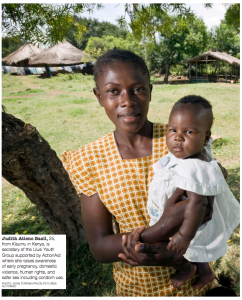More Power to Women
An exciting week’s ahead for women around the world!
Today the United Nations celebrates the 30th anniversary of the CEDAW – The Committee on the Elimination of Discrimination Against Women. On World Population Day (July 11th) the government of the United Kingdom along with the Bill and Melinda Gates Foundation hopes to raise up to 4 billion dollars to provide women around the world with access to modern contraception.
CEDAW: A Superhero for Women:
Let’s kickstart the week with this high-energy video from Scotland on the new superhero for women – CEDAW!
In 1979, the UN General assembly adopted the Convention for the Elimination of Discrimination Against Women. CEDAW became a formal treaty in September 1981, after 20 countries ratified it.
CEDAW consists of 23 experts from around the world at any time, and 104 global experts have served on it in the last 30 years. Currently its Asian members hail from China, India, Japan, Bangladesh, Afghanistan, Turkey, Israel, and Mauritius.
Since 1982, CEDAW has worked to eliminate “any distinction, exclusion, or restriction made on the basis of sex in the political, economic, social, cultural, civil or any other field.” As part of the 30th anniversary celebrations at the UN headquarters in New York, a panel discussion will focus on women’s political participation and leadership. Hopefully, they’ll provide us with information on how to get women all around the world more involved in making the decisions that affect their progress.
London Family Planning Summit:
 To aid the discussions in the Summit, ActionAid has produced four case studies from Africa, and identifies the three most striking barriers to contraception: gender inequality, violence and stigma.
To aid the discussions in the Summit, ActionAid has produced four case studies from Africa, and identifies the three most striking barriers to contraception: gender inequality, violence and stigma.
This is also true of several Asian countries as well, where child marriage is still rampant, and it is not uncommon for women to become pregnant multiple times early in their lives. These practices hinder their education, and their ability to support themselves and their families.
Contraception could empower these women by helping them choose if and when they want to have a child. But given the religious, social and cultural situation in Asia true empowerment is possible only if men are included in the dialogue, and if safe abortions are offered alongside access to contraception.
1.Safe Abortions: As we’ve written before on this blog, access to contraception and safe abortion complement each other. The Gates Foundation seeks to reduce unwanted pregnancies and ensuing abortions by 70% by providing contraception. But the summit will not directly address the need for safe abortions.
Unfortunately, when contraception failure leads to an unwanted pregnancy, women are very likely to seek abortions. If the government does not work toward providing safe access, women are forced to use unsafe methods, which very often result in death or severe complications.
According to the Guttmacher institute, 56% of all abortions in the developing world are unsafe.
2.Male Participation: The Family Planning Summit hopes to generate dialogue that will empower women, and eliminate their barriers to contraception. Unfortunately, it is hard to imagine such a unilateral conversation succeeding in Asia and Africa, where women still need their husband’s money or permission of both in order to access contraception.
A podcast produced by the Guardian highlights both these points.
Link: http://www.guardian.co.uk/global-development/audio/2012/jul/02/global-development-podcast-family-planning
Gita Sen, Professor at the Center for Public Policy at the Indian Institute of Management, and Yasmin Ahmed, senior managing director of Asia at Marie Stopes International provide a South Asia perspective. A little past the 12th minute on the recording, Yasmin Ahmed leads the conversation into the need to encourage male participation, and to include safe abortions in the agenda.
With two days left to go, will the Gates Foundation and the U.K. government make changes?






